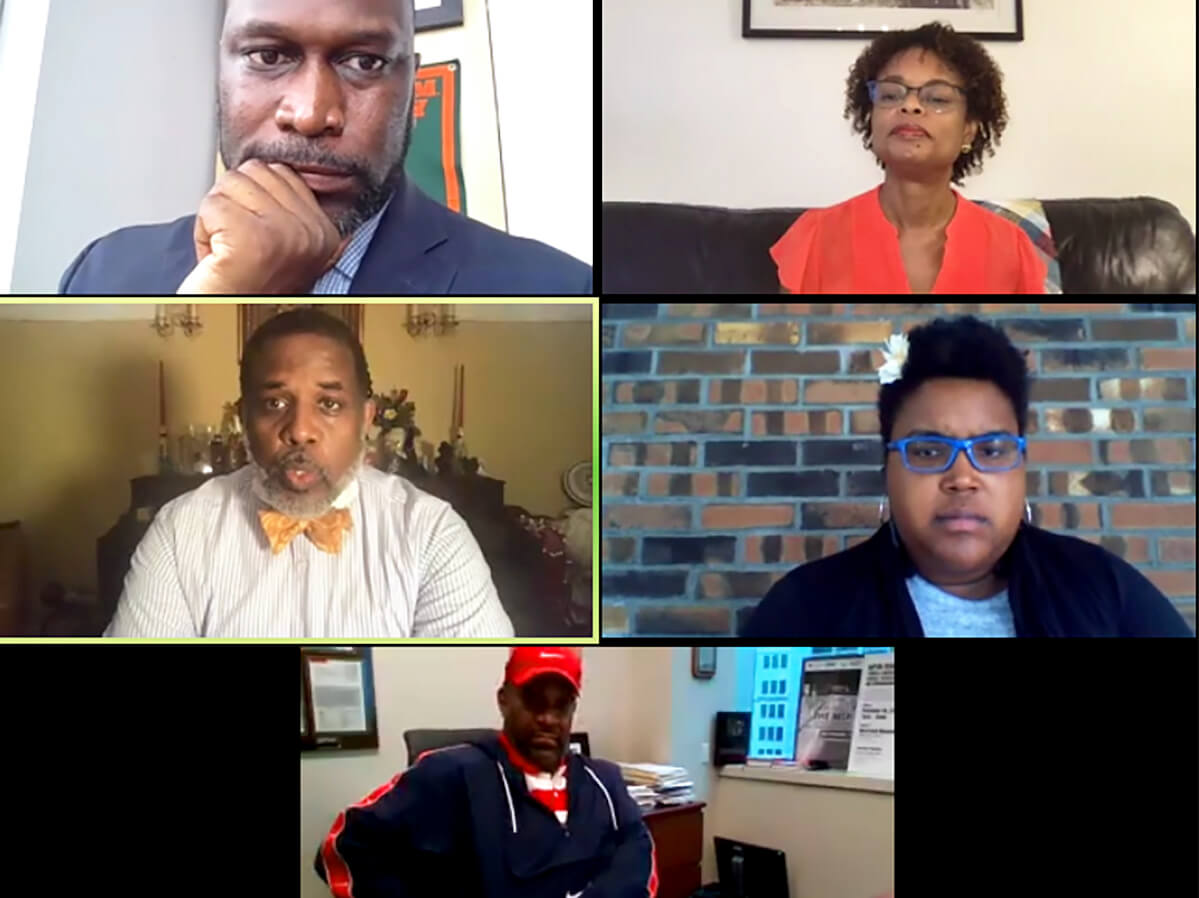(NEW YORK –August 4, 2020) – As New York’s economy rebuilds from the damage caused by the COVID-19 pandemic, what is being done to ensure that hard-hit Black and brown communities aren’t left behind? Yesterday, New York State Senator Kevin Parker (D-21, Brooklyn) and a group of diversity and strategy chiefs from city and state agencies shared their efforts during a virtual panel discussion hosted by City and State New York. McSilver Institute’s Communications Director Sheryl Huggins Salomon moderated the discussion.
“The unemployment numbers are abysmal – and they are abysmal for white people, so you know how bad they are in the Black and Latino communities. But if we think that white employment is going to be the way that we get ourselves out of this economic hole, then we are sorely mistaken,” said Senator Parker. “We need to start new entrepreneurship for people in our [Black and Latino] communities. Some of that is going to be eventually anchored by state and city and federal contracts. And the other part we have to do is to help our current entrepreneurs retool and reconnect.”
As Huggins Salomon shared in her introduction:
- In May 2020 unemployment rates were about twice as high for Black, Latinx and Asian New Yorkers as they were for white New Yorkers, according to the New York City Comptroller Scott M. Stringer‘s office.
- In a Comptroller’s Office survey last month of more than 500 city-certified minority and women-owned businesses, 85 percent said they cannot survive for six more months – even though half had been in business for more than 10 years.
- And of 622 contracts the city gave to businesses for pandemic-related goods, only 1 percent went to Black-owned firms, according to Crain’s New York Business. Latinx-owned firms received 1.3 percent and Asian-owned companies received 2.5 percent.
In recognition of these disparities, last week New York City Mayor Bill de Blasio signed an executive order requiring all city agencies to appoint a chief diversity officer and use minority and women-owned businesses to procure goods and services valued up to $500,000.
Metropolitan Transit Authority‘s Chief Diversity Officer Michael Garner said since the beginning of the pandemic his agency has awarded $73.1 million in contracts to more than 26 minority-owned and women-owned businesses (MWBEs) to supply the equipment, supplies and professional services for the agency’s COVID-19 response. This represents 32 percent of procurement contract funds. Parker noted that the MTA is ahead of other local agencies in terms of awarding contracts to MWBEs.
Disparities that predate the pandemic mean that relatively few MWBEs are positioned to scale up quickly to provide goods and services during an emergency, noted Lindsay Greene, Chief Strategy Officer at the New York City Economic Development Corp. “Speed is often at odds with our MWBE and equity goals,” she said. “We don’t have enough of the MWBE firms of the size and scope to be able to respond and be reliable and get to that level of immediate execution.”
Sandra Jefferson Grannum, who is in the newly-created position of Chief Diversity and Inclusion Officer at the New York State Office of the Attorney General, said the goals of her office are to have a staff that is more reflective of the state’s residents. A more diverse staff could be more attuned to the concerns of communities that are calling for equity in the pursuit of justice, she added.
Learn more about NYU’s Strategies to Reduce Inequality Initiative, which is led by the McSilver Institute.
